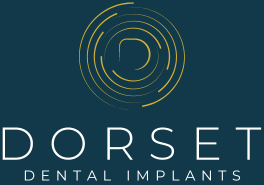A dental implant is a titanium screw that fuses with your jawbone. It acts like a natural tooth root to stabilise the tooth or teeth.
The process of fusing an implant with bone, called ‘osseointegration’, once complete, then provides very strong, stable and reliable support for the tooth or teeth that will connect to the implant with a component called an abutment.
Alternative solutions like bridges and dentures fail to account for the fact that real teeth help preserve the jawbone, while bridges and partial dentures can harm the rest of your teeth in the long term. Fixed bridges require your dentist to cut good tooth structure from your adjacent teeth, and partial dentures require other teeth to hold them in place.
These teeth are severely weakened by the chewing forces on partial dentures. As for full dentures, these can slip and restrict the types of food you can eat, causing embarrassment when out and about.
When a dental implant replaces a tooth, the implant provides stability to the jawbone without damaging teeth. Several authorities say the long-term success rate for dental implants is 97%.
Dental implants eliminate the problems associated with other replacement methods and allow people to eat anything confidently. An implant can replace one missing tooth, but as few as four implants can replace all the upper or lower teeth.
The number depends on the quality and size of your jawbone. For more information on the benefits of dental implants, check out our blog post: The Top 10 Benefits of Dental Implants.
What next?
For more information, please click here to email the practice to make an appointment or call 01202 973300.
